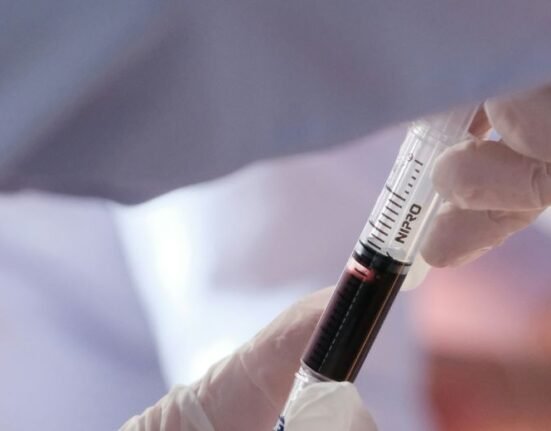HQ Team
September 2, 2023: A simple blood test can diagnose Parkinson’s disease which afflicts more than 10 million people globally, according to researchers at the Duke University Health Systems.
The test can potentially establish a way to help diagnose the condition before nervous system damage worsens, according to a university statement.
“Currently, Parkinson’s disease is diagnosed largely based on clinical symptoms after significant neurological damage has already occurred,” said Laurie Sanders, senior author, and an associate professor in Duke School of Medicine’s departments of Neurology and Pathology.
“A simple blood test would allow us to diagnose the disease earlier and start therapies sooner,” she said. “Additionally, a clear-cut diagnosis would accurately identify patients who could participate in drug studies, leading to the development of better treatments and potentially even cures.”
Mitochondria
Duke Health neuroscientists focused on DNA damage in the mitochondria — factories within cells that convert raw energy into a form that powers cells. They zeroed in on mitochondria as a biomarker.
The mitochondria contain their own DNA, which can undergo damage separately from the nuclear DNA that encodes most of an organism’s genome.
Mitochondrial DNA damage had been associated with an increased risk of Parkinson’s disease, and the Duke-led team had previously reported an accumulation of mitochondrial DNA damage specifically in the brain tissue of deceased Parkinson’s patients.
Using polymerase chain reaction technology, the Duke team developed an assay that successfully quantified higher levels of mitochondrial DNA damage in blood cells collected from patients with Parkinson’s disease compared to people without the disease.
Mutations
The new test also identified high levels of the damaged DNA in the blood samples of people who harbour the genetic mutation LRRK2, which has been associated with an increased risk of the disease.
The assay was able to detect Parkinson’s disease patients with and without LRRK2 mutations.
The neuroscientists further explored whether the team’s PCR-based test could determine the impact of a therapy targeting the effects associated with LRRK2 mutation.
In these samples, the test identified lower mitochondrial DNA damage in cells treated with a LRRK2 inhibitor compared to samples from patients who did not receive the inhibitor.
“This suggests the assay could help pinpoint Parkinson’s disease patients who might benefit from LRRK2 kinase inhibitor treatments, even if they do not have the LRRK2 mutation,” according to the statement.
Identify drugs
“Our hope is that this assay could not only diagnose Parkinson’s disease, but also identify drugs that reverse or halt mitochondrial DNA damage and the disease process,” Ms Sanders said.
Additional testing of the assay in samples from patients with the earliest stages of disease, before symptoms develop, is planned.
The study was published in the journal Science Translational Medicine.








